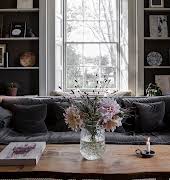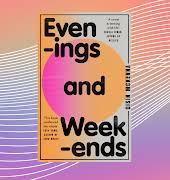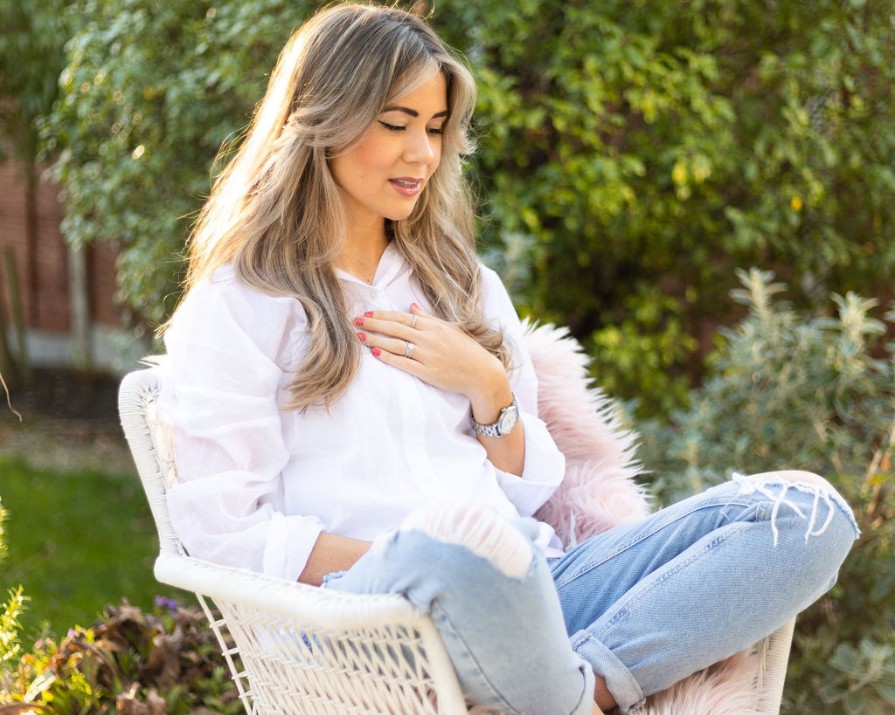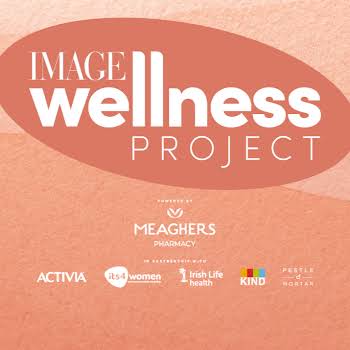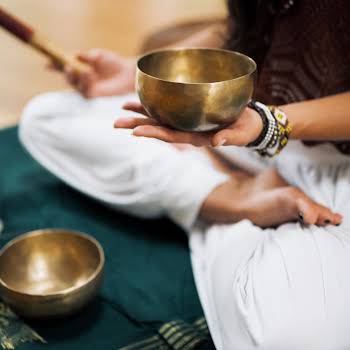Sponsored
10 questions you’ve always wanted to ask a meditation expert
Sponsored By
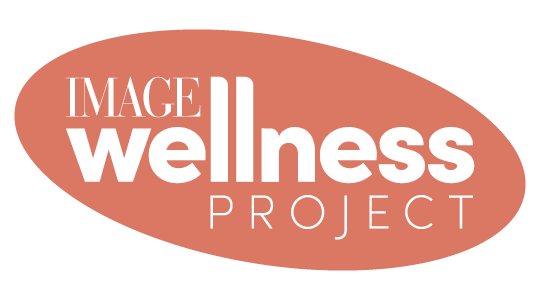
By IMAGE
29th Apr 2024
29th Apr 2024
Sponsored By

Well-being specialist, meditation trainer and life coach Sinéad Mooney answers readers' burning questions about all things meditation – from its benefits to best practices.
1. What exactly is mediation?
As I teach it, meditation is a daily practice that you learn how to do independently and then… practice. It is a state of human being for a tiny bit of the day, not a human doing. Most of my teachings are around unlearning – demystifying preconceived ideas of what meditation is. So many people have turned away from meditation because of the connotations/presumptions and media-fueled stylised depictions of what it is. It is simply gifting yourself time every day to meet yourself where you are at… frazzled, exhausted, calm, hyper, worried, fidgety – sitting in it, bathing in yourself to increase your potency.
Breathe, sit, be. It really is that simple. I am so passionate about lifting back the curtain on many of these ancient wisdom traditions and empowering people to utilise them in their own modern lives to feel more themselves, to disconnect from the noise/distraction and to feel the power of awareness ripple out into every aspect of their lives and those around them.
I realise I’ve made it sound so incredibly easy and simple, but it is. Its depiction is complicated because being real, it’s big business. And also in its simplicity, we can become challenged and that is why I believe in learning, having a plan for integrating it into your routine and then having ongoing help to maintain it as a support throughout your life! It really isn’t just a ‘nice to have’ habit, in our modern world, it’s a ‘have to have’ habit.
2. What is your top tip for someone new to meditation to make it a habit that sticks?
Scheduling is key. If you come at this, similar to any new habit, or lifestyle tweak, without actively engaging with integrating it into your day/week – you are going to fail. I talk a lot on my courses and in life in general about doing things on purpose – being purposeful in planning your meditation is setting you up to succeed! As a Life Design Coach, it comes as no surprise that I firmly believe we need to architecturally and deliberately build new aspects into our lives. It won’t happen by chance or hope.

3. I can’t seem to quiet my mind when meditating. Is there a particular technique for this? How do I know I’m doing it right?
The biggest meditation myth is that you need to quiet your mind. You do not need to have a quiet mind in mediation. Our brain is a glorious machine and we need to work with it rather than trying to shut it down. As far as doing it right… if you are doing it, you are doing it right. There are indicators that start to present themselves as you develop your practice but forgetting about that and simply getting it done is key.
4. What are the benefits of meditation?
This is a funny one – I could list out 20 pages of benefits but it only takes a quick Google to find these stats so I do encourage you to have a browse. Research is only really starting to emerge from decades of study and it’s exciting to see the neurological and physical benefits being validated by science.
But for me, it’s always about how it helps you in your every day. For example, Sarah walking along the street in Sligo could feel powerless due to her low-key anxiety and lost due to her sense of self. Most people come to learn to meditate because of a period of high stress or due to experiencing discomfort from anxiety or overwhelm. These are only some of the symptoms that arise from living in the intensity of our modern world and yes these will be soothed by meditation. But this is just the tip of the iceberg.
Instead of looking at meditation as a nice way to benefit us… I see it as an essential aspect of our lives to support our existence alongside ever-increasing technology and intensity. It is rare that someone isn’t feeling the effects of living in this modern busy world; it’s not you, it’s to be expected. When we realise this, a weight is lifted and we start to accept how things are and look for supports to make things better – enter meditation. A daily recalibration and break from the distraction. Think of it simply as me-recharge time each day.
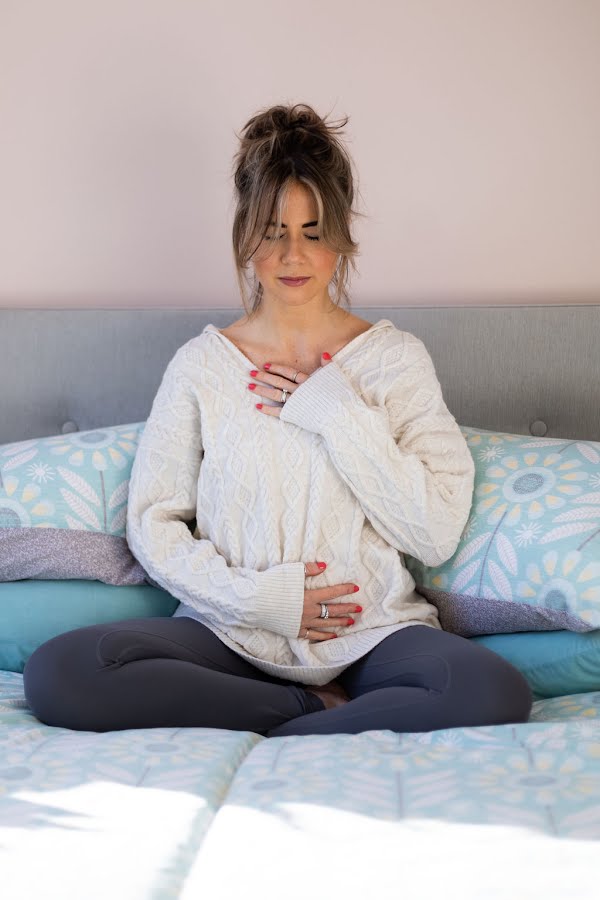
5. What’s the best time of day to meditate? Can I meditate right before going to sleep?
Morning and later afternoon in my opinion are the best time. Meditation before sleep tends to invigorate you with rest saturation and can actually lead to sleep cycle disturbances. This, I might add, is in relation to meditation in its traditional form. Other mindfulness practices that aid relaxation will, of course, help wind down towards sleep – calming breathwork, mindful movement, guided sleep stories etc. But meditating right before bed? I would personally advise against it – save it for a time when it can give you a top-up of rest and act as a boundary line perhaps between the work and home parts of the day. That is powerful!
6. What should I focus on when meditating?
Our aim is not to focus on anything! There are so many different styles that of course centre on focus – a candle flickering, breathwork, mantra or even more active techniques like walking meditation but when I am speaking to meditation, it is a seated or lying down state of non-doing, humans just being. It’s the most potent and deeply transformative transcending style. My reasoning is that we are all time-poor so if we are engaging in meditation, we want our time to be used most efficiently for maximum results. I get it! I’m a busy mum of two with a broad business who needs to get bang for my buck from my allocated meditation time.
7. What is the best position for meditation practice? Should I sit with my legs folded on the floor, or can I sit comfortably on a couch or even lie in bed?
Honour where you meet yourself each practice. Assess your energy, and your physical needs and either sit or lie. Make sure you are comfortable and warm but ideally not in a shape that will induce sleep. For that reason, my preference is a comfortable seated position.

8. Sometimes I feel more anxious when trying to switch off and meditate. Is there anything I can do to help this?
This might sound odd but embracing the anxiety at times can be a way to rest from the constant fight to ‘get rid’ of it. Utilising some nervous system-regulating breathwork at the start is a lovely way to settle in as much as possible but then perhaps allowing a safe space to ride through the feelings as they rise and fall. Often it’s the struggle to move away from a feeling that nearly causes more pain than the feeling itself. Be gentle and kind to yourself as you try to dissipate the rising response; lying on the floor is also wonderful to help ground and earth ourselves to the here and now.
9. How do I start meditating again after a break?
I teach people to meditate, as in – you have it, you know how to do it, it’s yours forever. I believe we should all be empowered with these practices for use ourselves, to have them to hand when we need them without searching out a class or downloading an app. So for me, you acquire a tool that you have yourself in your toolbox to use anytime. This means there is no fanfare about ‘getting back’, you simply close your eyes and slide back into some glorious self-soothing, self-discovery me-time. Again though, going back to question two, if you are trying to reform the habit, scheduling, planning, and intentional practice are key until of course, it becomes second nature and you need to meditate rather than ‘have to’.
10. Where should I meditate?
In the beginning, give yourself a chance and meditate somewhere that you will have some peace and will hopefully not be disturbed. But in general, we should be working towards building a strong practice that allows us to meditate anytime or anywhere we need it!
The IMAGE Wellness Project is powered by Meaghers Pharmacy and in association with Activia, its4women, Irish Life Health, KIND and Pestle & Mortar. Visit our Wellness Hub to download your valuable workbook and to follow weekly updates including interviews, videos and podcast episodes with our leading wellbeing experts.





